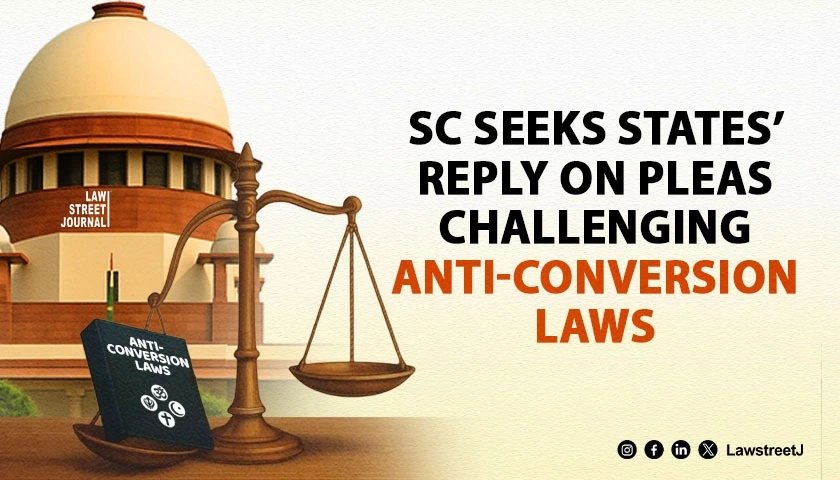NEW DELHI: The Supreme Court on Tuesday asked Uttar Pradesh, Uttarakhand, Haryana, Madhya Pradesh, and Rajasthan and other states to file a response on pleas for staying anti-religious conversion laws enacted by them.
A bench of Chief Justice of India B R Gavai and Justice K Vinod Chandran also decided to transfer to itself petitions pending before the High Courts, challenging the validity of these laws.
The court granted four weeks to these state governments to file their response and fixed the matter for further hearing after six weeks.
Several counsel appearing for various parties, including NGOs, argued that these laws are called the ‘Freedom of Religion Act’, but they are curtailing the religious freedom of minorities and targeting interfaith marriages.
The court asked Additional Solicitor General K M Nataraj to file the state governments' response on the applications seeking stay on the amendment in the laws.
The bench also de-tagged a plea filed by advocate Ashwini Upadhyaya seeking a pan-India law against conversion through coercion and deceit. In 2020, the apex court had issued a notice on a plea by Citizens for Justice and Peace against the laws in connection with religious conversions.
Subsequently, Jamiat Ulama-i-Hind filed a transfer petition before the apex court to transfer several cases pending in six high courts against the laws relating to religious conversions enacted by various states.
The laws under challenge include the Himachal Pradesh Freedom of Religion Act, 2019; the Madhya Pradesh Freedom of Religion Ordinance, 2020; the Uttar Pradesh Prohibition of Unlawful Conversion of Religion Ordinance, 2020; and a similar enactment in Uttarakhand. These laws aimed to prohibit forced or fraudulent religious conversions, but have faced criticism over alleged misuse and infringement on individual freedoms.
Disclaimer: This content is produced and published by LawStreet Journal Media for informational purposes only and does not constitute legal advice. The views expressed are independent of any legal practice of the individuals involved.















